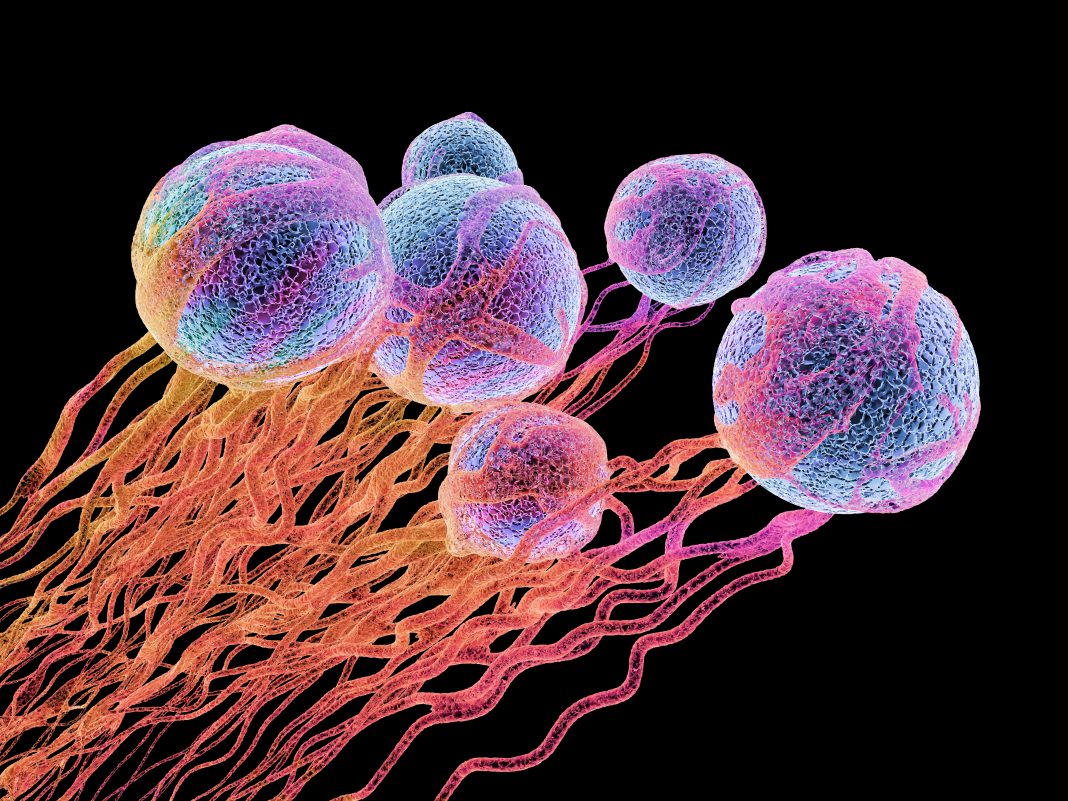The nucleus of a cell is centrally important to an organism. It stores and organizes genetic information, while separating and protecting this very important information from the host of other cellular components. While the nucleus requires this protective isolation, it also needs to communicate with the rest of the cell, exchanging proteins and RNA. The nuclear pore complex (NPC) is responsible for the protected exchange of components between the nucleus and cytoplasm and for preventing the transport of material not destined to cross the nuclear envelope. Now researchers at Sanford Burnham Prebys Medical Discovery Institute have shown that blocking this channel shrank aggressive tumors in mice while leaving healthy cells unharmed.
Their findings, “Inhibition of Nuclear Pore Complex Formation Selectively Induces Cancer Cell Death,” are published in Cancer Discovery and led by Maximiliano D’Angelo, PhD, associate professor in the development, aging, and regeneration program at Sanford Burnham Prebys.

“Increasing evidence shows that many cancer cells have increased numbers of NPCs and become addicted to the nuclear transport machinery. How reducing NPC numbers affects the physiology of normal and cancer cells and if it could be exploited for cancer therapies has not been investigated,” noted the researchers.
The team of researchers decided to investigate by transplanting human tumor cells that are unable to form NPCs into mice. The team tested three different tumor cell types: melanoma, leukemia, and colorectal cancer—which are known to be especially reliant on NPCs. The researchers observed that all of these mice had smaller tumors and slower tumor growth.
“We report that inhibition of NPC formation, a process mostly restricted to proliferating cells, causes selective cancer cell death, prevents tumor growth, and induces tumor regression. While cancer cells die in response to NPC assembly inhibition, normal cells undergo a reversible cell cycle arrest that allows them to survive,” the researchers wrote.
The team demonstrated that while the inability to build nuclear pore channels is devastating for rapidly-growing cancer cells, healthy cells were unaffected and left unharmed. “Our findings provide an important proof of concept that this approach could lead to a new type of cancer treatment, which might be especially beneficial for aggressive or metastatic cancers that are difficult to treat,” added Stephen Sakuma, a graduate student in the D’Angelo lab and first author of the study.
Looking toward the future, the researchers are working to find a drug that can block the formation of nuclear pore complexes. Their research closes the door on cancer cells and opens a door for new treatments and strategies. Their research may not only lead to treatments against colorectal cancer, melanoma, and leukemia, but may even lead to treatments against drug resistance.
“In addition to one day helping people with tough-to-treat cancers, we envision this drug candidate might be used to prevent drug resistance, which happens when tumors adapt properties to resist therapy,” said D’Angelo. “Tumors would have a hard time adapting to an environment where their ‘doors’ are removed, so this drug might help certain treatments, such as targeted therapies, remain effective for longer periods of time.”


